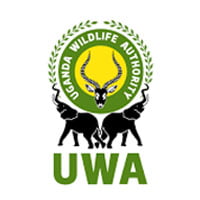On the border of Kenya and Uganda, at over 10,070 ft stands one of the most unique and magnificent Mountains in East Africa. Estimated to be 24 million years old, Mount Elgon’s highest peak is found in Uganda Wagagai – 14,177 ft and this can be accessed through several nature-filled trails from the Mount Elgon National Park and Sipi Falls at the foothills of the mountain.
On the border of Rwanda and Uganda, one of the extinct Virunga Mountains, Mount Mgahinga is one of those might visit/hike places. Locally translates as the ‘small pile of stones’; the Mgahinga is the smallest of the Virungas (Muhabura & Sabyinyo). It stands at 11,394 ft and gives a green blanketed view of the other forces of nature around while you make the climb.
Hiking is not for the faint. Takes patience, commitment and perseverance. The Mgahinga and Elgon are some of the best hiking trails that make up the African experience worthwhile, with beautiful wild animal encounters, bird species and many mythical cultural landmarks. To make your trip easier, here are a few things to carry along with you;
1. Sleeping gear
The most rewarding Elgon trail takes at least 4 to 5 days using either the Sasa or Sipi trails. This means you will be spending a lot of time in the wild especially the nights that get chilly. You are expected to carry your tents to pitch at specific safe zones picked by your ranger/guide. Be sure to carry along sleeping bags, mats and warm clothing for the chilly weather. This is more about your hygiene; it is better to use your bedding.
However, there is an option of renting these materials from the Uganda Wildlife Authority right before you set out on this hike.
2. Cooking materials
Materials like saucepans, and plates, are expected to be brought along with the hiker. I advise carrying less bulky material considering the terrain and the distance of the journey. This is also for your health and safety; you want to use trusted equipment for your food while on this adventure.
Food
There is a wide range of foods you can carry on such a trip. Endeavour to carry non-perishables that are nutritional and still not going to add weight to your luggage. You can decide to do the cooking yourself or hire someone to escort you on the trail specifically for this. In Mount Elgon, you can hire someone at 20,000 shs to have a personal chef on your hike.
3. Walking stick
Even the easiest climb will start to wear on you after a few days of doing the same. For Mount Elgon and Mgahinga, the trails get steeper as one elevates. This is why a walking stick is provided to you by your ranger before you set off into the wild. The stick will support you to balance and ascend with less effort.
4. Hiking gear
Hiking boots
Sturdy but light boots are recommended. You will be walking through dump-thick bushes with sharp edges and thorns and possible streams of water. To be able to keep up with the momentum and still protect your feet, be sure to buy hiking boots.
Rain jacket
From grasslands, shrubs, montane forest, bamboo zone and montane woodland the Mgahinga slope is a tropical paradise. Especially if visiting through the rainy seasons of March-May and October-November, the rain jacket is quite an essential item. Be sure to remember that hat and sunglasses as well
Clothing
For any hike in any montane environment, be sure to wear long-sleeved shirts and long trousers. The shrubs and thickets harbour a lot of bugs and insects you do not want to pick any infection from especially that far up high the mountain.
Lightweight Backpack
Choosing one with a water-adhesive outer cover is a better option. Endeavour to pick one that is not so big but enough to carry all your essentials at once.
5. Porters
Not quite a requirement but Mgahinga and Elgon both have options for hiring porters to help carry the luggage along the hike. More so, they are available for any information required, answer cultural questions and give you the morale to keep on with the hike.
6. First aid kit
First off, ensure to massively prepare for the hike before taking one on. It might seem like something you might easily do, but practice helps you adapt very well to the tyrannous long journey.
Be sure to see you see your doctor for any subscription of any safe painkillers you might need to relieve any unexpected pain. Include gauze, scissors, plasters, safety pins, antibiotics, duct tape and bandages among others
7. Water bottles
For a few days in the wild, you want to be sure to have enough safe drinking water. It might be bulky but a better bet than being stuck on the hike halfway through the mountain with no freshwater.
While on any trail remember to stay very close to your ranger/guide and not wander off to unknown trails without company or letting anyone know your whereabouts. Double-check your package to ensure you have all the necessities checked out before you set off because they might be harder to find once the adventure has started. Remember to have fun and live every moment to the fullest.








